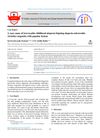 September 2022 in “IP Indian journal of clinical and experimental dermatology”
September 2022 in “IP Indian journal of clinical and experimental dermatology” An 8-year-old girl has a rare genetic disorder causing complete, irreversible hair loss and skin bumps.
8 citations,
January 2011 in “International journal of trichology” Accurate diagnosis of APL is crucial to avoid unnecessary treatments.
 111 citations,
March 1951 in “Annals of the New York Academy of Sciences”
111 citations,
March 1951 in “Annals of the New York Academy of Sciences” Understanding the mouse hair cycle is crucial for cancer research.
 12 citations,
February 2008 in “Journal of The American Academy of Dermatology”
12 citations,
February 2008 in “Journal of The American Academy of Dermatology” Combining skin tissue pathology with genetics has greatly improved the diagnosis and understanding of certain skin diseases.
 26 citations,
July 2019 in “Dermatology and Therapy”
26 citations,
July 2019 in “Dermatology and Therapy” The conclusion is that genetic testing is important for diagnosing and treating various genetic hair disorders.
 December 2022 in “Curēus”
December 2022 in “Curēus” Genetic testing confirmed a young girl has Atrichia with Papular Lesions due to mutations in the hairless gene.
 1 citations,
February 2013 in “Clinical pediatrics”
1 citations,
February 2013 in “Clinical pediatrics” The baby’s hair loss was due to a rare genetic condition, not treatable by usual methods.
35 citations,
September 2006 in “American Journal Of Pathology” Odontogenic keratocysts are caused by abnormal Hedgehog signaling and can lead to tooth and bone issues.
26 citations,
October 2002 in “Journal of Investigative Dermatology” A specific gene mutation causes congenital hair loss.
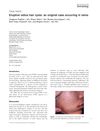 4 citations,
July 2014 in “International Journal of Dermatology”
4 citations,
July 2014 in “International Journal of Dermatology” Twins had rare skin cysts likely due to genetics.
5 citations,
February 2015 in “Ophthalmic plastic and reconstructive surgery” Two new types of eyelid cysts were identified, each with different treatment challenges.
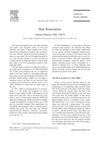 5 citations,
April 2005 in “Clinics in Plastic Surgery”
5 citations,
April 2005 in “Clinics in Plastic Surgery” Micrografts and minigrafts for hair restoration provide high patient satisfaction and can cover large areas of hair loss, including sideburns, eyebrows, and beards.
 2 citations,
February 2009 in “Clinical and Experimental Dermatology”
2 citations,
February 2009 in “Clinical and Experimental Dermatology” A man had rare skin tumors with bone formation and cholesterol deposits.
 19 citations,
January 2021 in “Experimental dermatology”
19 citations,
January 2021 in “Experimental dermatology” Acne inversa is an epithelial-driven disease where inflammation is caused by cyst rupture, and treatments should focus on preventing tendril growth for better results.
 39 citations,
December 2008 in “Clinics in Dermatology”
39 citations,
December 2008 in “Clinics in Dermatology” Dermoscopy has improved skin cancer diagnosis and has expanding applications in dermatology, but requires staying updated with new research and techniques.
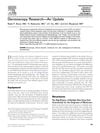 30 citations,
September 2009 in “Seminars in Cutaneous Medicine and Surgery”
30 citations,
September 2009 in “Seminars in Cutaneous Medicine and Surgery” Dermoscopy has greatly improved the diagnosis of skin lesions and our understanding of their morphology and biology.
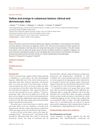 21 citations,
September 2015 in “Journal of the European Academy of Dermatology and Venereology”
21 citations,
September 2015 in “Journal of the European Academy of Dermatology and Venereology” Yellow and orange colors are important for diagnosing certain skin conditions.
 10 citations,
January 2010 in “Veterinary pathology”
10 citations,
January 2010 in “Veterinary pathology” A new mutation in the hairless gene causes hair loss and skin wrinkling in mice.
 1 citations,
January 2019 in “Springer eBooks”
1 citations,
January 2019 in “Springer eBooks” Hidradenitis Suppurativa is a chronic skin condition best treated early with surgery for better outcomes and less recurrence.
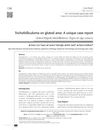 September 2022 in “TURKDERM”
September 2022 in “TURKDERM” A rare benign skin nodule was found on the buttock, a unique location for this condition.

Proper care and diet are crucial to prevent health issues in gerbils.
 521 citations,
January 1954 in “Physiological Reviews”
521 citations,
January 1954 in “Physiological Reviews” Hair growth is cyclic and influenced mainly by local factors.
 109 citations,
September 2011 in “Human molecular genetics online/Human molecular genetics”
109 citations,
September 2011 in “Human molecular genetics online/Human molecular genetics” New treatments targeting specific genes show promise for treating keratin disorders.
 97 citations,
September 2016 in “Reviews in Endocrine and Metabolic Disorders”
97 citations,
September 2016 in “Reviews in Endocrine and Metabolic Disorders” The sebaceous gland has more roles than just producing sebum and contributing to acne, and new research could lead to better skin disease treatments.
 89 citations,
September 2010 in “Annual Review of Genomics and Human Genetics”
89 citations,
September 2010 in “Annual Review of Genomics and Human Genetics” The document concludes that understanding the genes and pathways involved in hair growth is crucial for developing treatments for hair diseases.
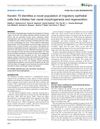 60 citations,
November 2013 in “Development”
60 citations,
November 2013 in “Development” Keratin 79 marks a new group of cells that are key for creating and repairing the hair follicle's structure.
 42 citations,
February 2021 in “Signal Transduction and Targeted Therapy”
42 citations,
February 2021 in “Signal Transduction and Targeted Therapy” Hair follicle regeneration possible, more research needed.
 41 citations,
November 2011 in “The Journal of Dermatology”
41 citations,
November 2011 in “The Journal of Dermatology” Some hair loss disorders are caused by genetic mutations affecting hair growth.
 38 citations,
June 2003 in “Journal of Investigative Dermatology Symposium Proceedings”
38 citations,
June 2003 in “Journal of Investigative Dermatology Symposium Proceedings” Accurate clinical, histological, and genetic methods are key for understanding and treating hair disorders.
 36 citations,
January 2012 in “International Journal of Trichology”
36 citations,
January 2012 in “International Journal of Trichology” Losing eyelashes or eyebrows can be a sign of many different health problems and needs a careful approach to treat effectively.


























